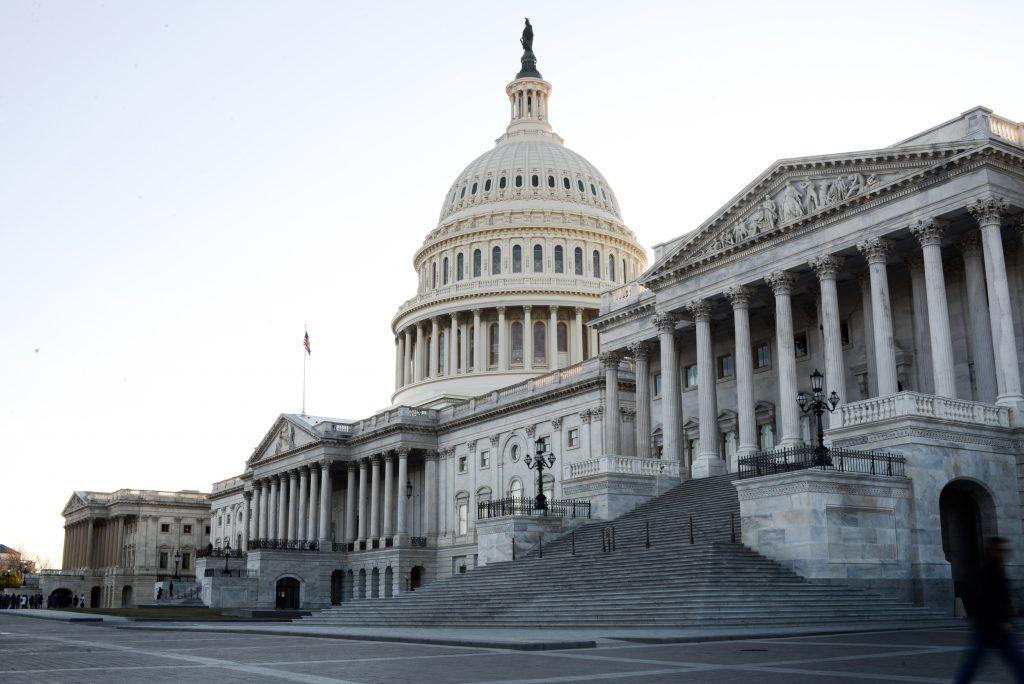A presidential executive order is threatening to revoke federal funds from D.C. because of the city’s commitment to protecting undocumented immigrant citizens.
U.S. President Donald Trump signed an executive order Jan. 25 declaring sanctuary cities a violation of the law. The order said that states, as well as the District, will not receive federal funds if they do not follow immigration laws by reporting and deporting undocumented residents.
The University doesn’t track the number of undocumented students enrolled at GW but provides resources for those students to obtain financial aid and other assistance.
Isaac Fuhrman, the president of the International Students Community, said there are undocumented students at GW who would be affected by the executive order.
“The University will need to explore ways into helping them continue their studies at the University,” he said.
Daniel Martínez, an assistant professor of sociology and the associate director of the Cisneros Hispanic Leadership Institute, said it’s unclear how Trump’s immigration policies will affect the city.
“The optics would be really, really negative if ICE rolled into GW and started demanding to know about people’s immigration status,” Martínez said, referring to U.S. Immigration and Customs Enforcement. “There would be a lot of protests and resistance, and we would make our voices heard.”
Despite pressure to enforce federal immigration law, Mayor Muriel Bowser has vowed to protect the sanctuary city before the executive order was signed by providing $500,000 to community-based organizations, private organizations, associations and law firms that do legal work for immigrants in D.C., according to the mayor’s office website.
LaToya Foster, a spokeswoman and senior communications officer in the mayor’s office, deferred to Bowser’s press conference last week after the signing of the executive order in which Bowser said she is concerned about the federal government’s unwillingness to work with the city.
“We must remember our city is not alone,” Bowser said. “Millions of Americans share these values and beliefs.”
Opponents to sanctuary cities say that immigrants commit violent crimes, which creates an unsafe environment for documented citizens. Trump has announced that all crimes committed by undocumented citizens in sanctuary cities will be published weekly, The New York Post reported.
Rep. Lou Barletta, R–Pa., introduced for the third time earlier this month a bill designed to remove funding like the executive order, his communications director Timothy Murtaugh said.
Murtaugh said sanctuary cities draw undocumented citizens, which discounts the law and can cause problems for citizens looking for jobs, he said.
“It’s already hard enough to find a job,” he said. “The people who are here legally don’t need this extra competition from people who broke the law to be here.”
Murtaugh said he also took issue with mayors, like Bowser, who protect the undocumented citizens in their jurisdiction.
“Mayors cannot act like miniature dictators and decide which laws they will and won’t enforce,” he said. “They have to know that defying federal immigration law will have consequences.”
Mayors in cities like Boston, Los Angeles and New York have said they are committed to remaining sanctuary cities.
Sarah DeLong, a law student and student attorney at the Immigration Clinic in D.C. who represents clients going through immigration proceedings, said that when immigrants fear police officers that might deport them they are less likely to report crimes, which makes the city more dangerous for everyone.
“I think it’s important that you instill trust and communication between the local community law enforcement and the immigrant community and not treat our police as deportation officers,” she said.
DeLong said her clinic will continue to help undocumented citizens.
“There is an entire community dedicated to fighting for immigrant rights,” she said. “We’ve been here, and we will still be here no matter what [Trump] does.”
Alberto Benítez, a professor at GW Law School and the director of the Immigration Clinic, has worked with individuals from each of the seven countries Trump plans to exclude from entry to the U.S. since he joined the clinic in 1996.
Benítez said the problem with banning immigrants from certain countries is that it sends a message that all people in the country are the same, even though they are trying to leave their countries for unique reasons.
“There are bad, nasty people who are U.S. citizens too, and I think it’s cruel to paint everybody with the same brush,” he said.





